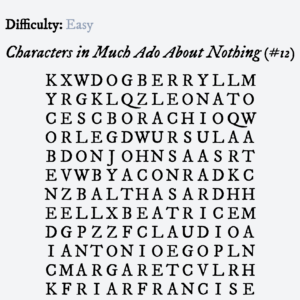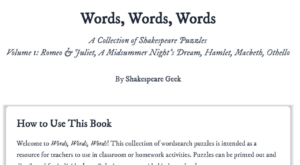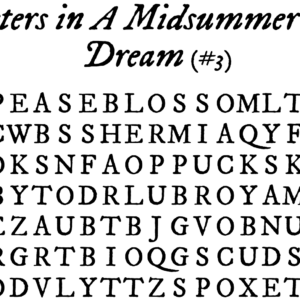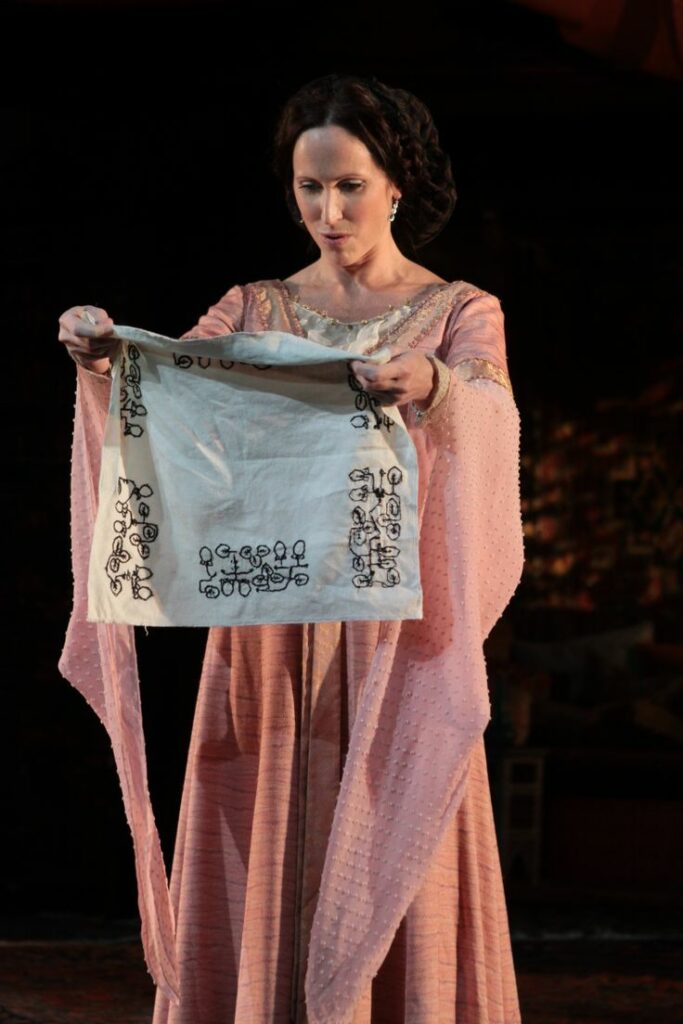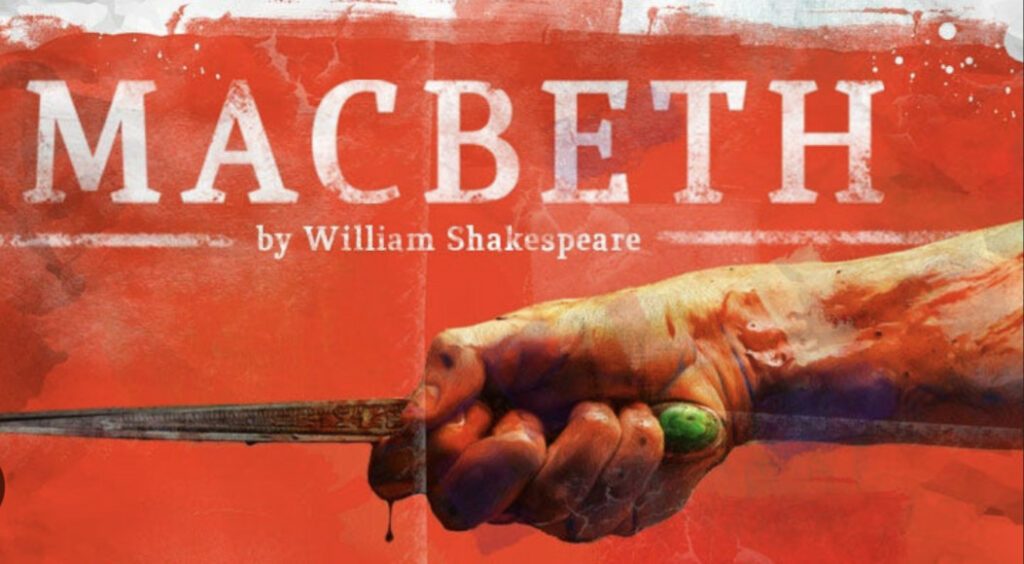I love a good word puzzle. I do the Connections and Strands every morning, and I think everybody knows about Bardle. I used to visit classrooms when my geeklets were younger. I’d always bring puzzles to print and distribute as a fun, Shakespeare-themed activity (as well as a Shakespeare-themed memory).
Those days are long in the past, but there’s no reason why the practice shouldn’t continue. I’ve mentioned before that I’ve got a store over on Gumroad focused on Shakespeare digital downloads — digital products rather than the traditional retail Shakespeare merchandise you’d find on Amazon. The goal with these is for teachers, who often spend their money to enhance their students’ learning opportunities, to easily access a wider variety of Shakespeare material. Once downloaded, the material can be printed and distributed at will, as often as you like.
Perhaps the most universal word puzzle is the word search – no patterns, no clues, no tricks, just find the words. So, of course, the variety in the puzzle comes with what words you choose, and boy, did Shakespeare give us a lot to work with there! With a bit of help from some software of my creation I’m pleased to unveil my next contribution.
Words, Words, Words: A Collection of Shakespeare Puzzles
The other great thing about word searches is that building them with software is pretty straightforward (try that with a Connections!) Since the puzzles tend to be easy, I wanted a way to make them in large numbers. Whether you’re just one person working your way through them all or a teacher selecting them one at a time based on what plays are on the curriculum, I wanted puzzlers to get the most possible fun out of their purchase
100 Puzzles Per Volume
Each download contains a total of 100 puzzles. Here’s how it breaks down:
There are five different puzzle topics. Right now, that means five different plays per volume, but as the library grows, this will change.
There are four difficulty levels. Easy ones have the words only left to right or top down. These are for the youngest audiences still getting the hang of how its done. Medium puzzles add backward, so look right to the left or bottom up! Hard level brings in the diagonals. Ready for expert mode? On the Expert level, you don’t get the list of words, just how many words you’re looking for.
There are five puzzles per topic per difficulty level. For example, if one topic is Characters in Hamlet, you’ll get five easy puzzles, five medium, five hard, and five expert. Twenty puzzles per topic, five topics, for a total of 100 puzzles.
Solutions Are Provided
Each puzzle is uniquely numbered, allowing quick lookup of solutions at the back of the book. These can be printed and made available with individual puzzle, or kept in digital form and used as answer key.
Two Volumes Now Available
Volume 1 starts in well-known territory, looking at the characters from Shakespeare’s most well-known (and frequently taught) plays: A Midsummer Night’s Dream, Hamlet, Macbeth, Othello and Romeo & Juliet.
Volume 2 continues the theme with more of Shakespeare’s greatest works: King Lear, Julius Caesar, Taming of the Shrew, Twelfth Night and Much Ado About Nothing.
Many More To Come
As a programmer, I spent time getting the process right to produce these Shakespeare downloadables as efficiently as possible. Which means that I can pretty much crank them out however I like. I’d love to do more themes like Words Shakespeare “Invented”, Shakespeare’s Friends and Family, Shakespeare’s Sonnets and Poetry, Shakespeare’s Contemporaries … the list is practically endless.
I’m starting with these two straightforward volumes to see if the idea finds its audience. The best outcome? Teachers write back with their requests for themes they feel will be most helpful in their classrooms. (I’ve included my email address right on the title page)
Any questions? Please enjoy your new Shakespeare downloadables! I hope to have the opportunity to create many more for you and your students very soon. You can download a FREE SAMPLE here!

